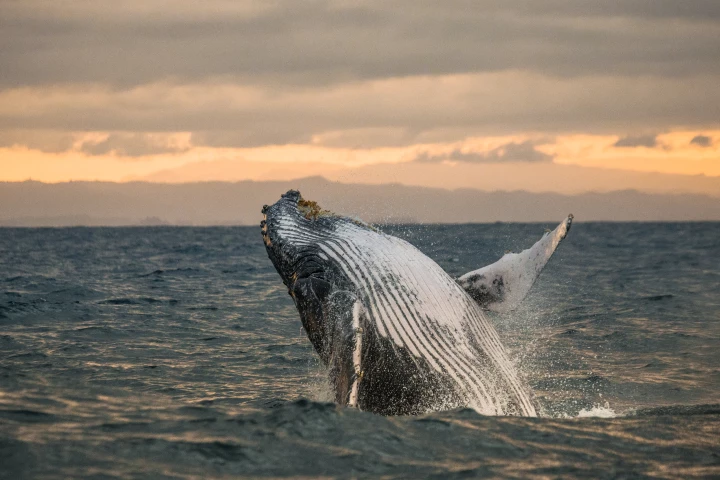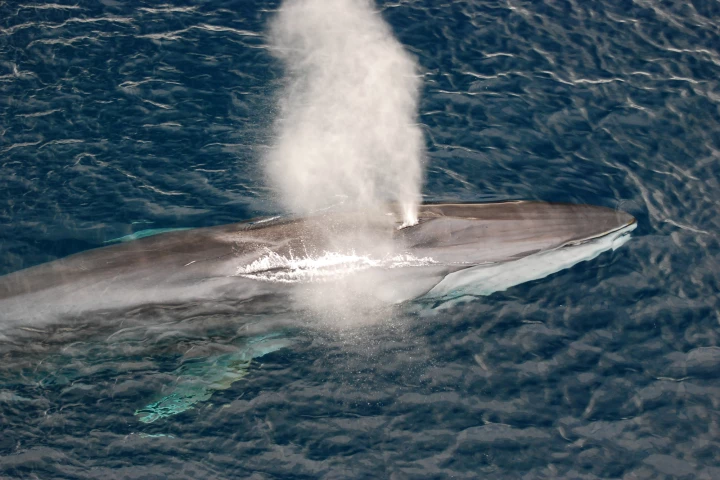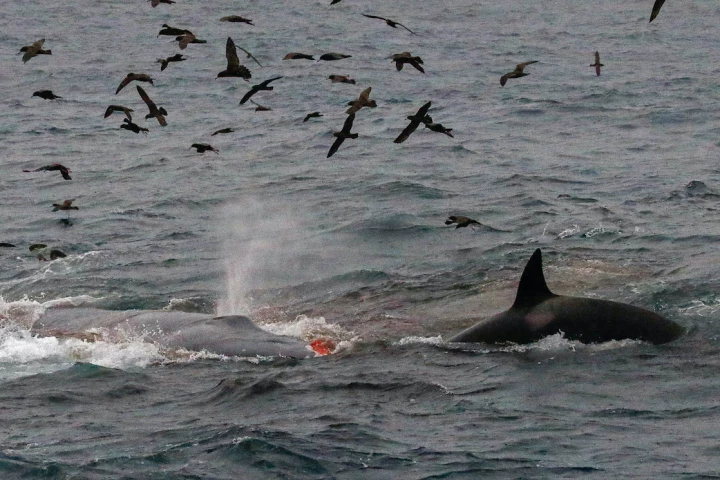Whale
-
Whales are not only the biggest animals on the planet, but they’re among the longest-lived, too. A new analysis reveals that right whales can live for more than 130 years, almost twice as long as previously thought.
-
The first-ever video of a blue whale nursing her calf has been released, as well as stunning footage of the species' intimate interactions. It's the first time these famously elusive animals have had their personal lives captured in this way.
-
Meeting aliens rarely goes well for humanity in movies. Scientists have been practicing by trying to chat to whales in their own language – and judging by early results, we should probably beef up security around the Eiffel Tower and the White House.
-
Already armed with an impressive sonar system, new research reveals that dolphins have an extra ability that evolves as they mature in the area where their baby whiskers once were. The super sense may help them navigate and find hidden food sources.
-
Play is a vital part of animal behavior, helping to form social structures and bonds, develop cognitive function and enhance physical abilities. Now, it's believed whale play with seaweed to scrub off dead skin cells and parasites as they migrate.
-
Dinosaur fans will already be familiar with the ichthyosaurus, a prehistoric marine reptile that resembled a dolphin in appearance. Well it now seems that one of its close relatives, named Hupehsuchus, fed much like a modern-day baleen whale.
-
The blue whale has long been considered the largest animal to have ever existed, even dwarfing the biggest known dinosaurs. But now a new species threatens to steal the crown, and upends what we thought we knew about whale evolution.
-
Global warming has caused many large whales to move from warmer waters, increasing the risk of being struck by ships. Researchers have used existing fiber-optic cables to track fin whales in real time, which may reduce the incidence of ship strikes.
-
Understanding whales has historically been a time-consuming and difficult task for scientists, not least because these magnificent mammals spend about 95% of their days underwater. Now, drone technology is offering a new frontier of vital research.
-
Could the phenomenon of whale and dolphin strandings be due to Alzheimer's-like cognitive deficits in pod leaders that draw groups into shallow waters? A new study found pathological signs of Alzheimer's disease in brain tissue from stranded dolphins.
-
Scientists at Stanford University have analyzed microplastic concentrations and the foraging habits of whales off the coast of California, and found that blue whales take in an estimated 10 million pieces of plastic each day.
-
Along with eating fish and seals, killer whales (aka orcas) are also known to hunt some types of whales. For the first time ever, however, there has now been a documented case of them killing the largest animal in the world – an adult blue whale.
Load More











